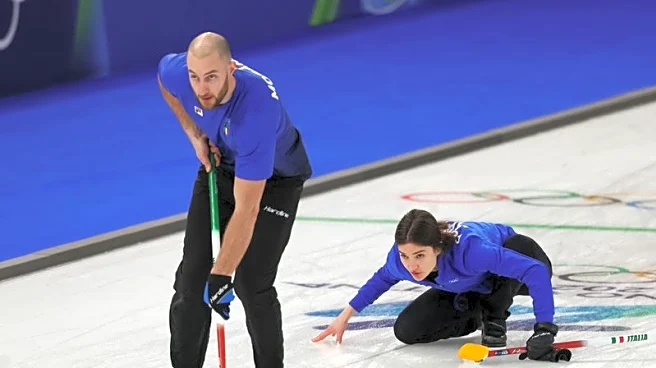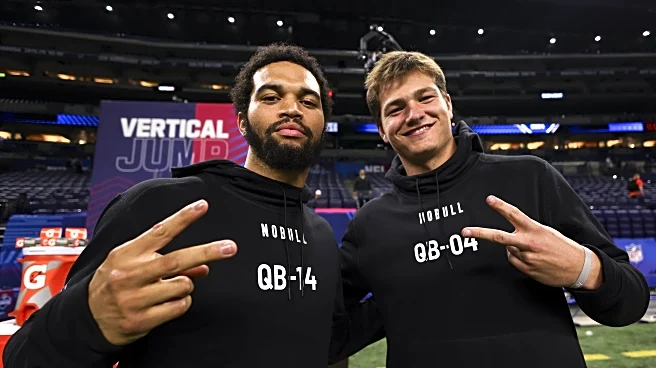What's Happening?
Brendan Allen, ranked ninth in the UFC middleweight division, is set to face Reinier de Ridder in the main event at UFC Vancouver on October 18. Allen, who hails from Beaufort, South Carolina, has a record of 25-7 and is known for his determination and work
ethic rooted in his Southern upbringing. His journey into mixed martial arts began when he was inspired by his brother's Jiu-Jitsu class, leading him to train in Brazilian Jiu-Jitsu at the age of 13. Allen transitioned from wrestling and boxing to MMA, eventually becoming a professional fighter after winning the IMMAF 2015 World Championships. His family, particularly his father and brother, played a significant role in shaping his path, providing a foundation of hard work and ambition.
Why It's Important?
Brendan Allen's rise in the UFC highlights the impact of regional culture and family support in shaping successful athletes. His Southern roots and family values have contributed to his disciplined approach and resilience in the sport. Allen's participation in the UFC Vancouver main event not only showcases his personal journey but also emphasizes the significance of nurturing talent from diverse backgrounds. As Allen continues to gain recognition, his story serves as an inspiration to aspiring fighters and underscores the importance of community and family in achieving success in competitive sports.
What's Next?
As Brendan Allen prepares for the UFC Vancouver main event, his performance could further solidify his standing in the middleweight division. A victory against Reinier de Ridder would enhance his reputation and potentially open opportunities for higher-profile fights. The UFC community and fans will be closely watching Allen's performance, which could influence future matchups and his career trajectory. Additionally, Allen's story may continue to inspire discussions on the role of family and regional culture in developing successful athletes.
Beyond the Headlines
Brendan Allen's journey from a small-town upbringing to the UFC spotlight reflects broader themes of perseverance and the influence of cultural identity in sports. His story highlights the ethical and cultural dimensions of sportsmanship, emphasizing the importance of community support and personal values in achieving success. Allen's narrative may contribute to ongoing conversations about the role of family and regional identity in shaping athletes' careers, offering insights into the diverse pathways to success in competitive sports.

















